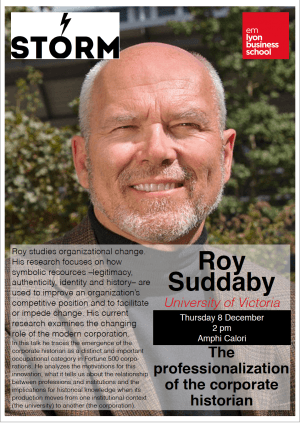The professionalization of the corporate historian
The corporate historian/archivist is a relatively recent innovation. While historians have had a long historical association with corporations, as researchers, biographers or consultants, the notion of an embedded, in-house professional with formal roles and responsibilities seems to emerge in US Fortune 100 corporations only in the 1980s. Prior to this, the core professional identity of the historian was as an “academic historian” whose institutional affiliation was closely attached to the university. The emergence of the corporate historian, however, has created tensions and questions among historians and offers an ideal context within which to examine the relationship between dominant institutions and processes of professionalization.
This study examines the intimate but unarticulated relationship between professions and institutions. Specifically, it elaborates the argument that, as a dominant institution, the corporation has replaced the nation-state as the primary engine for generating new professions. The manifestation of the corporate archivist/historian raises a number of interesting theoretical and empirical questions. When and how did the corporate historian emerge? Why now and not contemporaneously with the historical emergence of the corporate form? What is the professional project of the corporate historian and how does it differ from that of the academic historian? What are the implications of the production of history within the institutional context of the modern corporation for history, itself?


